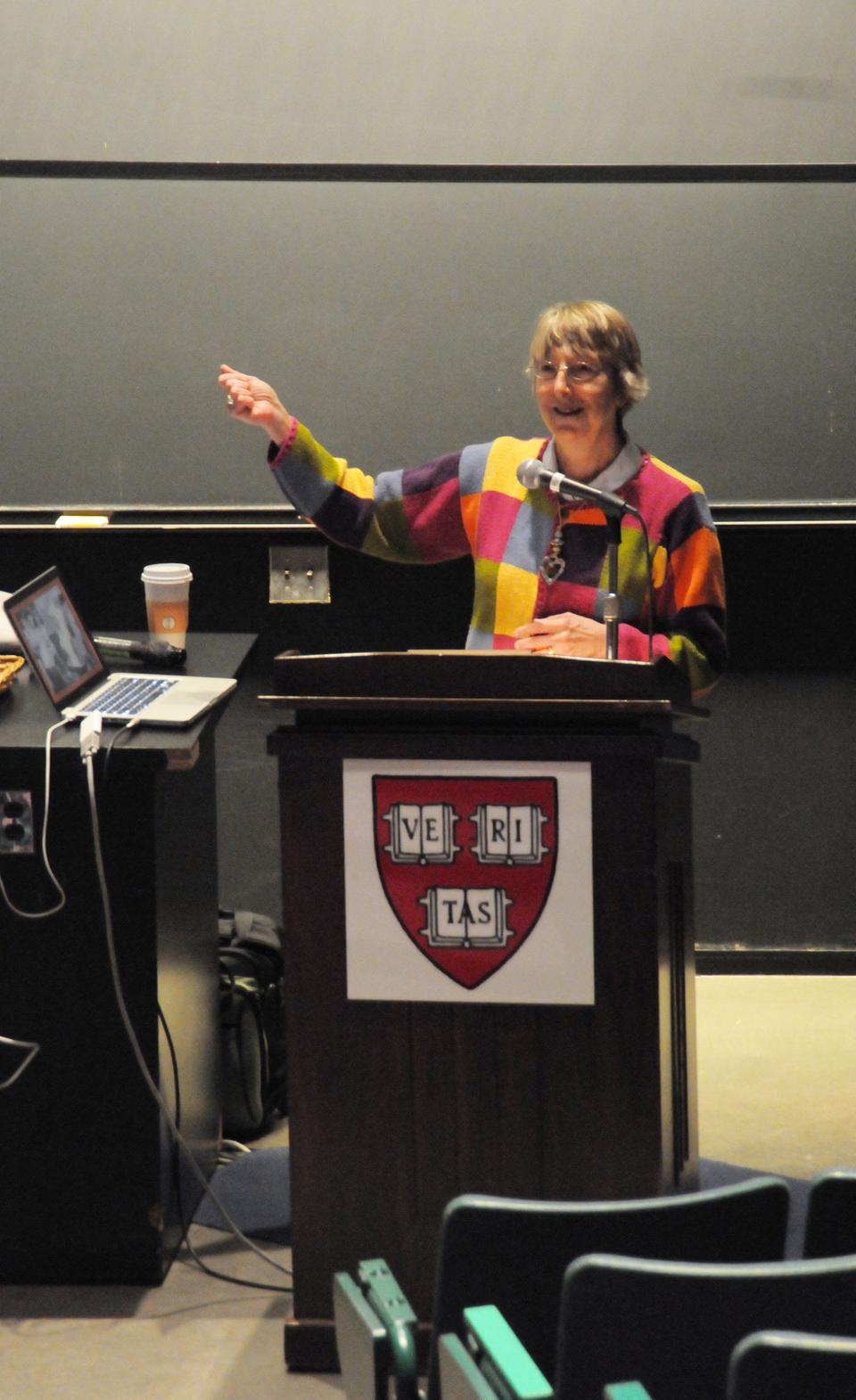
News
Summers Will Not Finish Semester of Teaching as Harvard Investigates Epstein Ties

News
Harvard College Students Report Favoring Divestment from Israel in HUA Survey

News
‘He Should Resign’: Harvard Undergrads Take Hard Line Against Summers Over Epstein Scandal

News
Harvard To Launch New Investigation Into Epstein’s Ties to Summers, Other University Affiliates

News
Harvard Students To Vote on Divestment From Israel in Inaugural HUA Election Survey
Feminist Calls for Veganism

Feminist-vegan Carol J. Adams, who authored “The Sexual Politics of Meat: A Feminist Vegetarian Critical Theory,” urged students to reject animal products, pointing out the parallels between the consumption of meat and misogyny at an event sponsored by the Harvard College Vegetarian Society.
According to Adams, meat-eating is equated with masculinity and power in society. She referred to male-bonding in steak-houses or at barbecues as examples of a culture of male-dominant consumption of meat and women.
An ad showing “grills gone wild” and the restaurant chain Hooters demonstrate the “feminization of animals and the animalization of women,” she said.
Adams said she was motivated by her strong views on promoting equality “for all beings.”
“I want to do the least harm possible, I want to walk lightly on this earth,” she said.
Adams noted that meat-eating would not exist if female animals were not forced into pregnancy and their reproductive abilities exploited to produce milk and eggs.
“Oppression isn’t an idea. It’s an activity,” Adams said. “It is this activity.”
Adams also opposed the degradation of fish.
“We have treated fishes as a mass term ‘fish’ and we don’t view them as individuals,” she said.
Some audience members challenged Adams for not including statistics about the pervasiveness of the problem, and for declining to specify whether she would oppose meat-eating in an “ideal world” in which animals were not exploited. But Adams said she wanted to look at the existence of female and animal debasement as an “experience” rather than a number.
“I don’t give a damn about statistics,” Adams said. “I feel that using statistics participates in a rationalized way of thinking about the problem that undercuts my perspective.”
Demanding statistical proof of the prevalence of the association between women and meat consumption, Adams said, was “deflecting the issue.”
Jono M. L. Rosenthal ’13, who is vegetarian, said he appreciated her liberal viewpoint and her emphasis on the importance of tackling issues in the context of the real world, as opposed to an “ideal” world. Rosenthal also noted that many of the aggressive questioners were men.
Vegetarian Society Co-Founder Jessica M. Luna ’10 said she “was hoping the provocativeness of the topic would draw people to the event” whether or not they are vegetarian.
Luna said that while the majority of her club is female, she believes there may be men who do not participate in vegetarian activism.
Erika C. Jahn, a second-year student at the Harvard Divinity School who writes a vegan-feminist blog, said though she was surprised by the difficult questions, she thought that Adams handled the situation well.
“I have never seen someone cross-examined like this at Harvard,” Jahn said.
—Staff writer Zoe A. Y. Weinberg can be reached at zoe.weinberg@college.harvard.edu.
Want to keep up with breaking news? Subscribe to our email newsletter.
